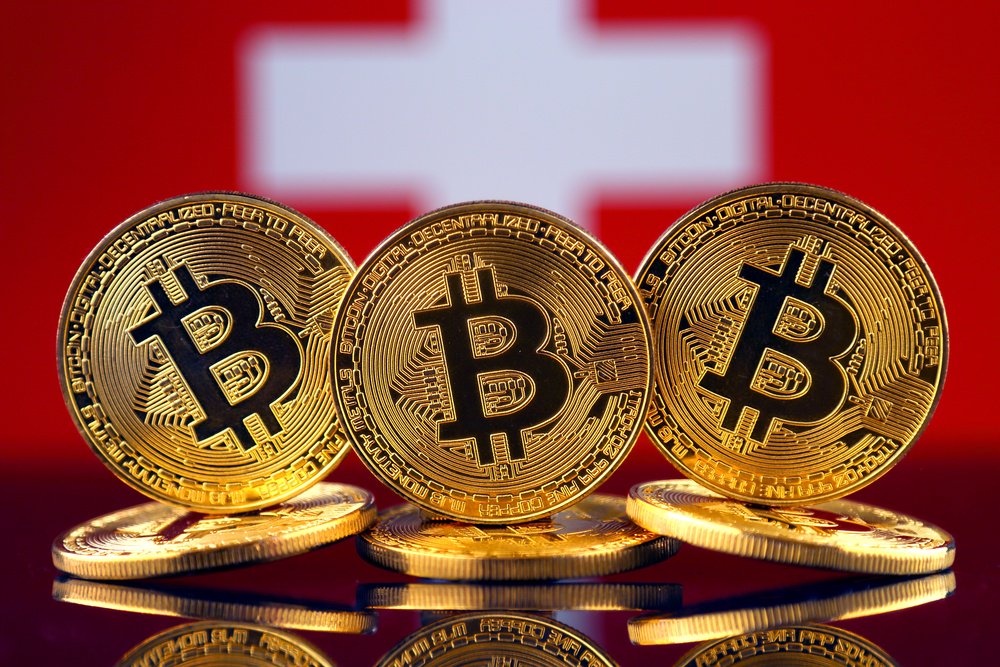Swiss National Bank Rejects Bitcoin as Reserve Asset
02.03.2025 8:00 2 min. read Kosta Gushterov
Switzerland’s central bank has no interest in holding Bitcoin as part of its reserves, according to Swiss National Bank (SNB) President Martin Schlegel.
He dismissed the idea, citing concerns over price instability, liquidity limitations, and security vulnerabilities.
His remarks come in response to a campaign led by Bitcoin advocacy group 2B4CH, which is seeking a public referendum to mandate Bitcoin holdings on the SNB’s balance sheet. The initiative, launched by the Swiss Federal Chancellery at the end of 2023, requires 100,000 signatures by mid-2026 to be put to a vote.
Schlegel argued that Bitcoin’s extreme price fluctuations make it unsuitable for safeguarding the value of the country’s reserves. He also stressed the importance of having highly liquid assets that can be quickly deployed if needed for monetary policy interventions. Another key issue he raised was security, pointing out that digital assets rely on software, which is inherently vulnerable to bugs and technical flaws.
Despite the rapid growth of the crypto sector, Schlegel downplayed its significance, calling it a niche market compared to the broader financial system. He also dismissed the idea that Bitcoin could ever rival the Swiss franc, stating that competition from cryptocurrencies is not a concern for the SNB.
While Switzerland remains a major hub for Bitcoin adoption, particularly in cities like Lugano, where pro-crypto policies have gained traction, the government appears reluctant to embrace it at a national level. Meanwhile, discussions about Bitcoin as a reserve asset are unfolding in countries such as the United States, the Czech Republic, and Hong Kong. El Salvador continues to accumulate Bitcoin in its treasury, while Poland has officially ruled out the possibility of adopting it as a reserve asset.
-
1
Bitcoin Reaches New All-Time High Above $116,000
11.07.2025 7:56 1 min. read -
2
Canadian Bank Sees Bitcoin Hitting $155,000 by 2025
15.07.2025 10:00 1 min. read -
3
Strategy Claims It Can Weather a Bitcoin Crash to $20K Without Trouble
16.07.2025 14:08 1 min. read -
4
Peter Schiff Warns of Dollar Collapse, Questions Bitcoin Scarcity Model
12.07.2025 20:00 1 min. read -
5
Corporate Bitcoin Adoption Soars: 125 Public Companies Now Hold BTC
16.07.2025 20:00 2 min. read
Where Is The Smart Entry Point For Bitcoin Bulls?
With Bitcoin hovering near $119,000, traders are weighing their next move carefully. The question dominating the market now is simple: Buy the dip or wait for a cleaner setup?
Matrixport Warns of Bitcoin Dip After Hitting This Target
Bitcoin has officially reached the $116,000 milestone, a level previously forecasted by crypto services firm Matrixport using its proprietary seasonal modeling.
Bitcoin Risk Cycle Flips Again as Market Enters Safer Zone
Bitcoin’s market signal has officially shifted back into a low-risk phase, according to a new chart shared by Bitcoin Vector in collaboration with Glassnode and Swissblock.
Robert Kiyosaki Warns of 1929-Style Crash, Urges Bitcoin Hedge
Financial author Robert Kiyosaki is once again sounding the alarm on America’s economic health.
-
1
Bitcoin Reaches New All-Time High Above $116,000
11.07.2025 7:56 1 min. read -
2
Canadian Bank Sees Bitcoin Hitting $155,000 by 2025
15.07.2025 10:00 1 min. read -
3
Strategy Claims It Can Weather a Bitcoin Crash to $20K Without Trouble
16.07.2025 14:08 1 min. read -
4
Peter Schiff Warns of Dollar Collapse, Questions Bitcoin Scarcity Model
12.07.2025 20:00 1 min. read -
5
Corporate Bitcoin Adoption Soars: 125 Public Companies Now Hold BTC
16.07.2025 20:00 2 min. read


